Americans are split on the recent drone strike ordered by President Trump that killed Iran’s highest-in-command general, and on what action the US should take next. But despite everyone sounding off about the aftermath of the attack and the possibility of war with Iran, one thing that many can agree on is that they have no clue where the country in question actually is.
A recent survey, taken just days after the news of the killing spread, but before Iran retaliated upon US bases in Iraq, showed that just 23% of American voters could locate the country on a world map. When they were shown a more zoomed-in map, eliminating the Americas, East Asia, and Australia from the options (as well as the option to throw your hands up, say “screw it” and point to the middle of an ocean) that number only rose to 28%. How would you have done on this quiz?
Morning Consult’s data editor who oversaw the survey also shared the results on Twitter
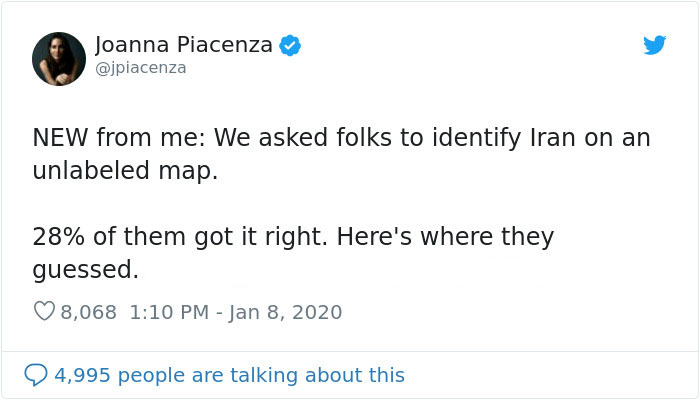
Image credits: jpiacenza
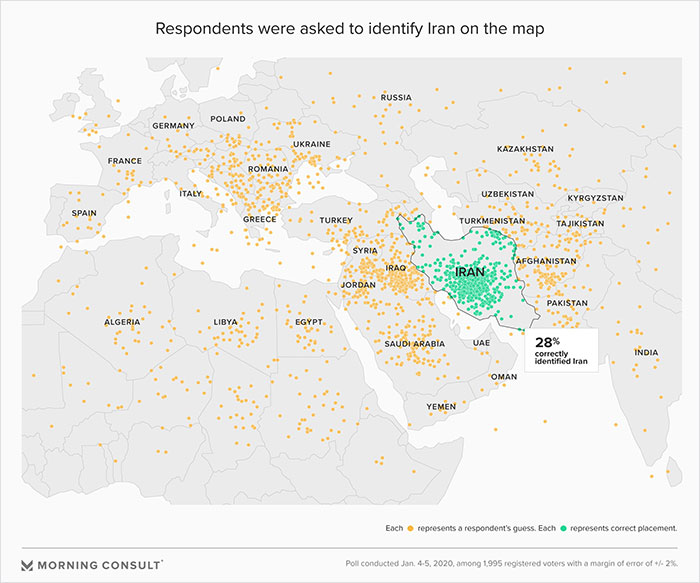
Image credits: morningconsult
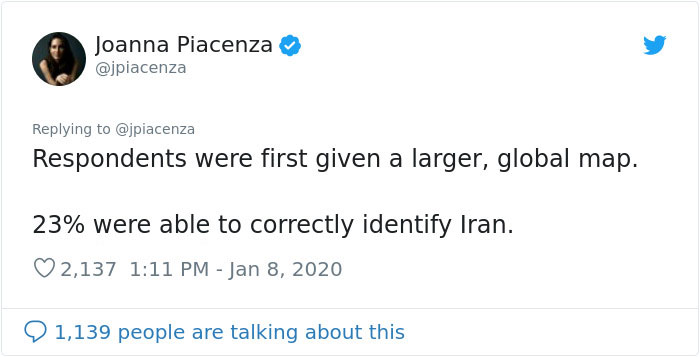
Image credits: jpiacenza
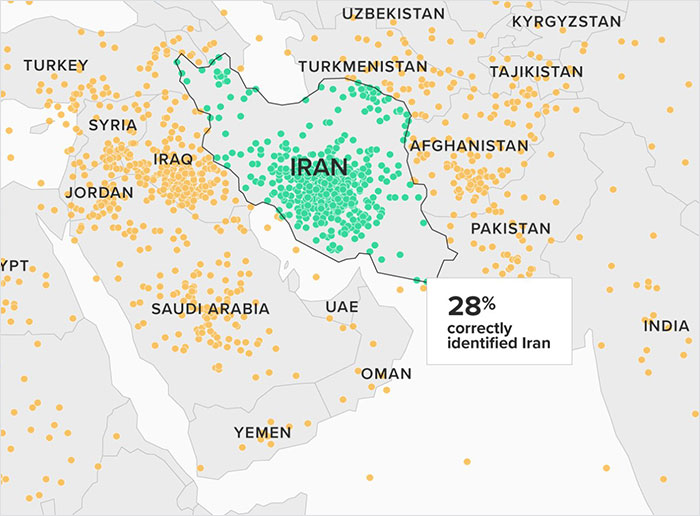
Image credits: morningconsult
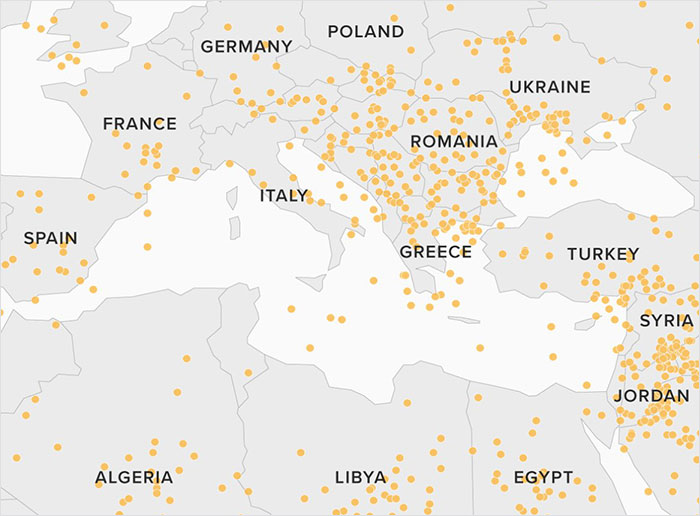
Image credits: morningconsult
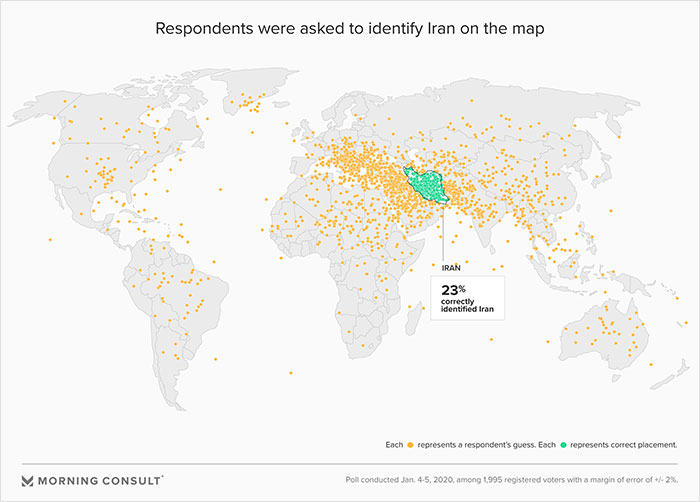
Image credits: morningconsult
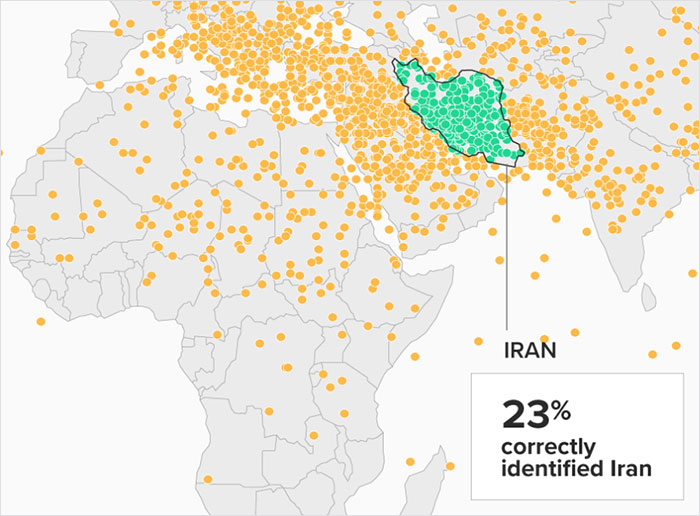
Image credits: morningconsult
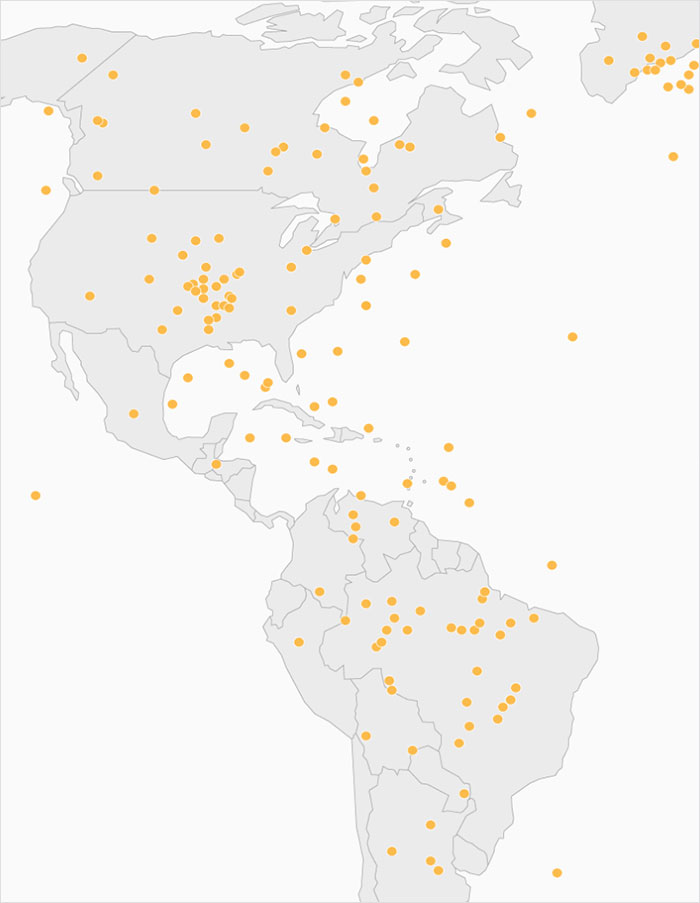
Image credits: morningconsult
A similar experiment in 2017 had Americans trying to point out North Korea on a map, and in 2014, they were asked to find Ukraine, with similar results. Disturbingly, in both surveys, there was a positive correlation between not knowing where the country in question was, and being in favor of airstrikes or deploying US troops there. That’s right: people are more likely to want to send their country’s beloved troops to places they can’t even envision.
The recent survey on Iran didn’t identify any such correlation between geographical knowledge and opinions on the implications of the strike, but it did reveal some other unfortunate truths. If you want to get smug about party lines, we’re going to have to stop you right there, because Democrats and Republicans both scored under 30%, with independents not scraping much higher (a margin of error of 2% makes those few percentage points not worth squabbling over.)
What’s more, even college-educated respondents struggled to locate Iran, with well below half responding correctly. Geography is usually lumped into “social studies” in US high schools, with many teachers reporting that they spend little time on it, and realistically, few people are learning geography after they graduate if they’re not majoring in it.
The data editor explained the survey’s findings

Image credits: jpiacenza
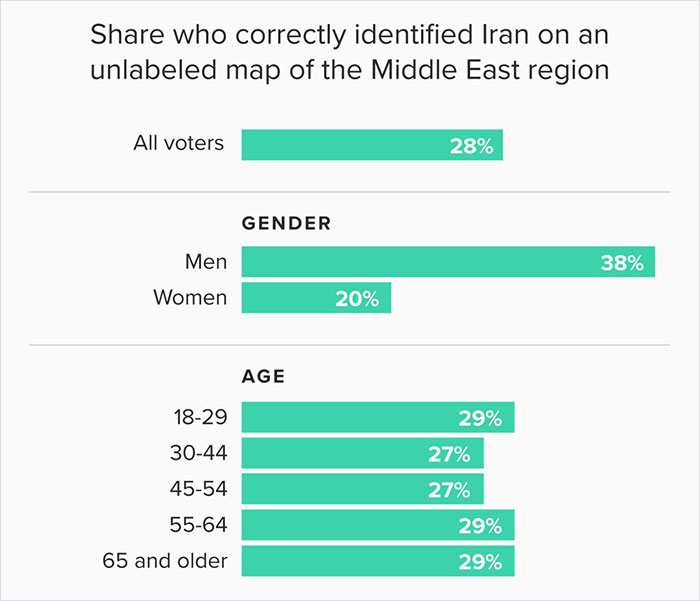
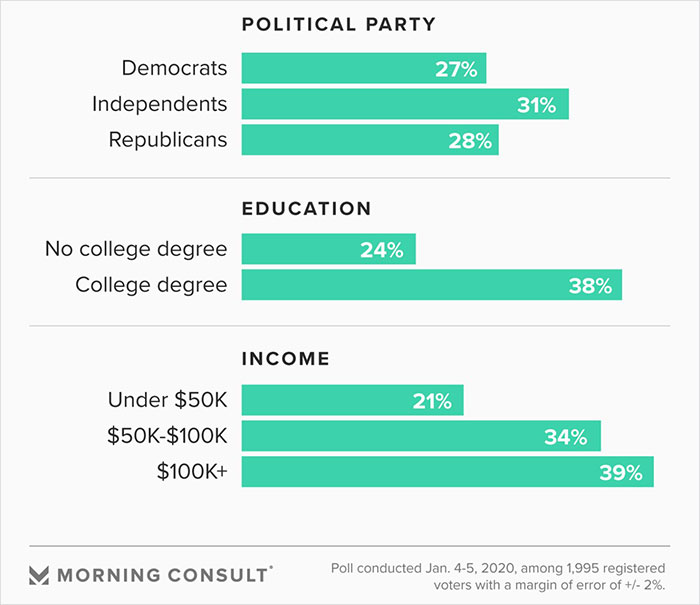
Image credits: morningconsult
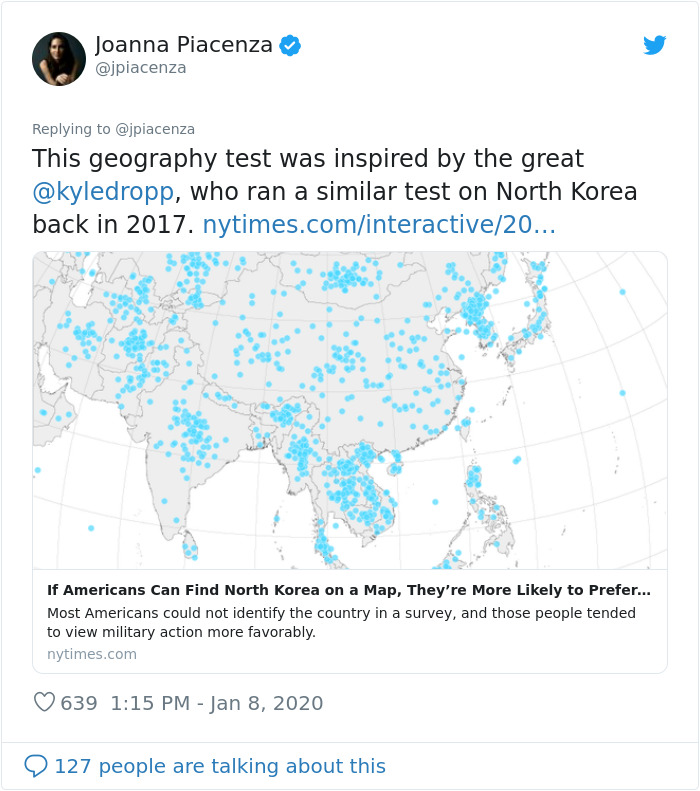
Image credits: jpiacenza
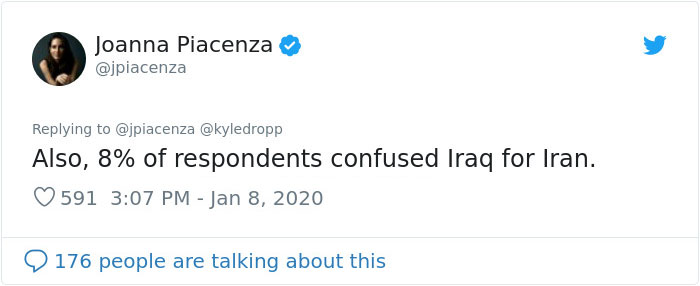
Image credits: jpiacenza
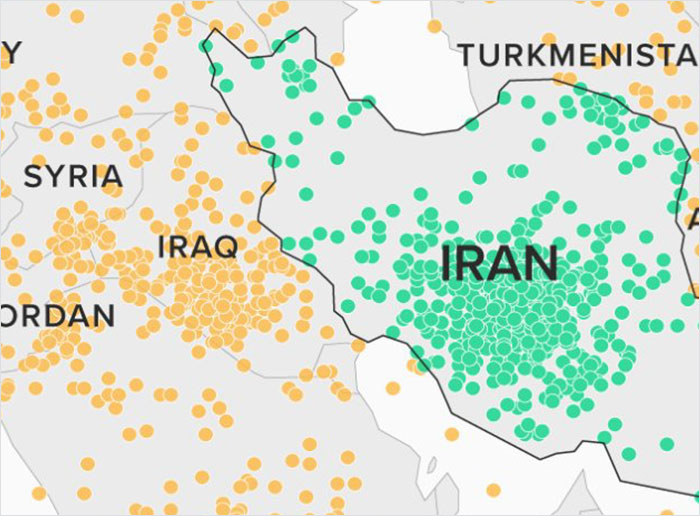
Image credits: morningconsult
A much lighter survey once asked Americans to label European countries, with hilarious results. Admittedly, quizzing Europeans on their knowledge of American states doesn’t go too well either, but isn’t that a bit of a false equivalence? There’s a huge difference between not knowing the parts of another individual country, and not knowing the locations of entire major players in world history and news.
The results of the Europe challenge may be amusing, but it’s hard to see the funny side of geographical ignorance when it involves countries that deeply affect and are affected by the politics of one’s own. We’re not asking anyone to memorize a world map or the historical timeline of another country in five minutes, but if you see a country’s name in the news five times a day and you realize you’re not sure where it is in relation to yours, Wikipedia is free.
A lot of commenters had a hard time believing how people can be this wrong
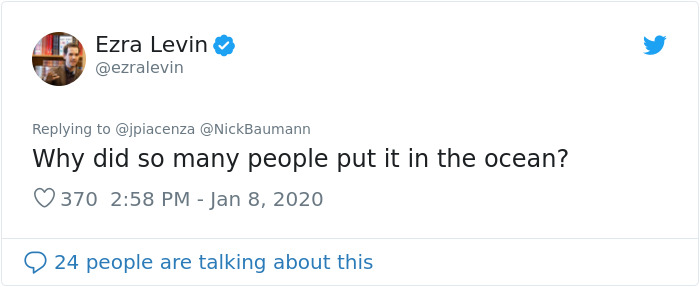
Image credits: ezralevin
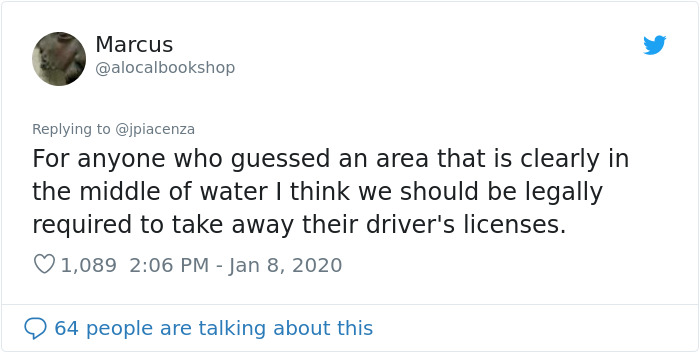
Image credits: alocalbookshop
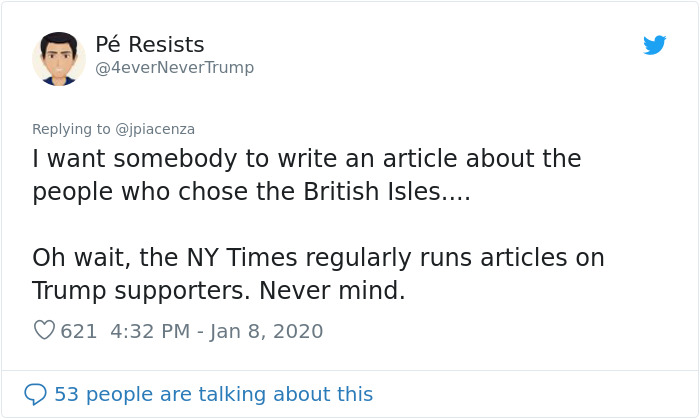
Image credits: 4everNeverTrump
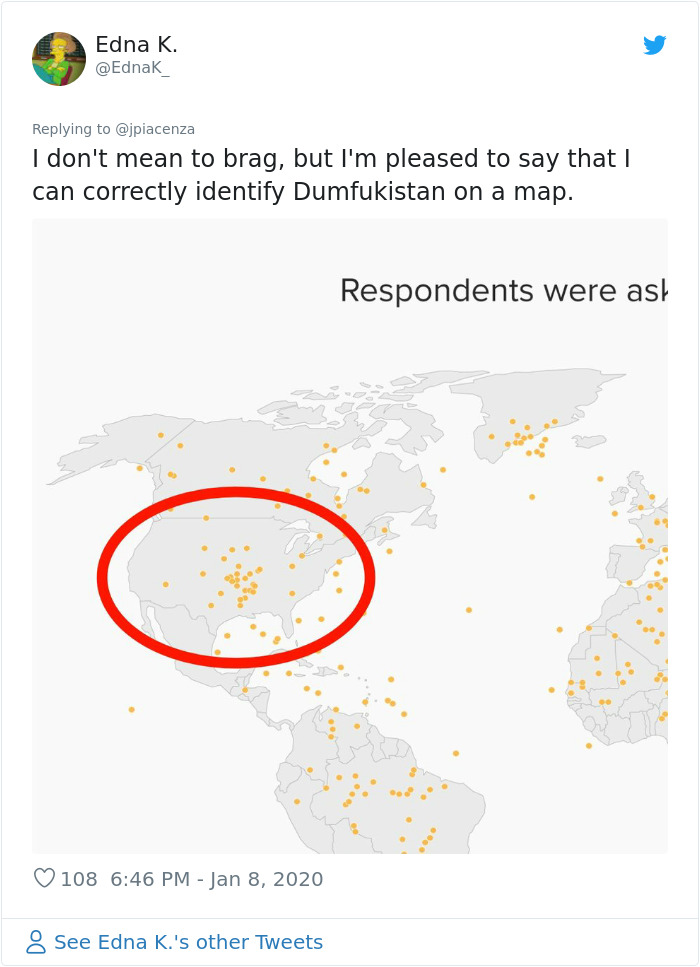
Image credits: EdnaK_
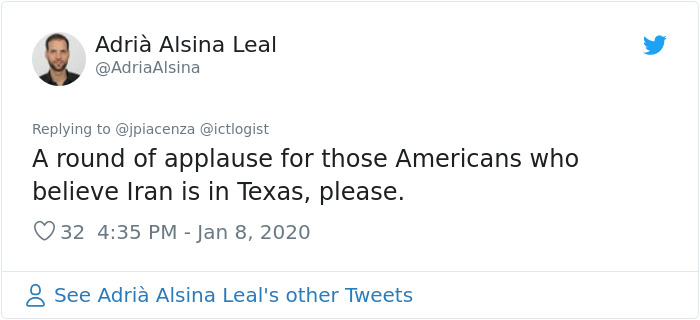
Image credits: AdriaAlsina

Image credits: arfarfarfy
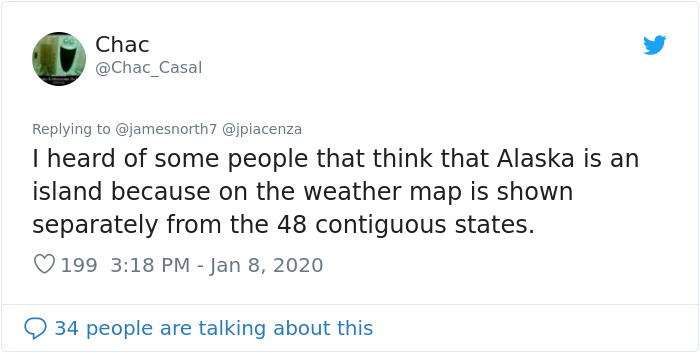
Image credits: Chac_Casal
by Mindaugas Balčiauskas via Bored Panda - Source

No comments: